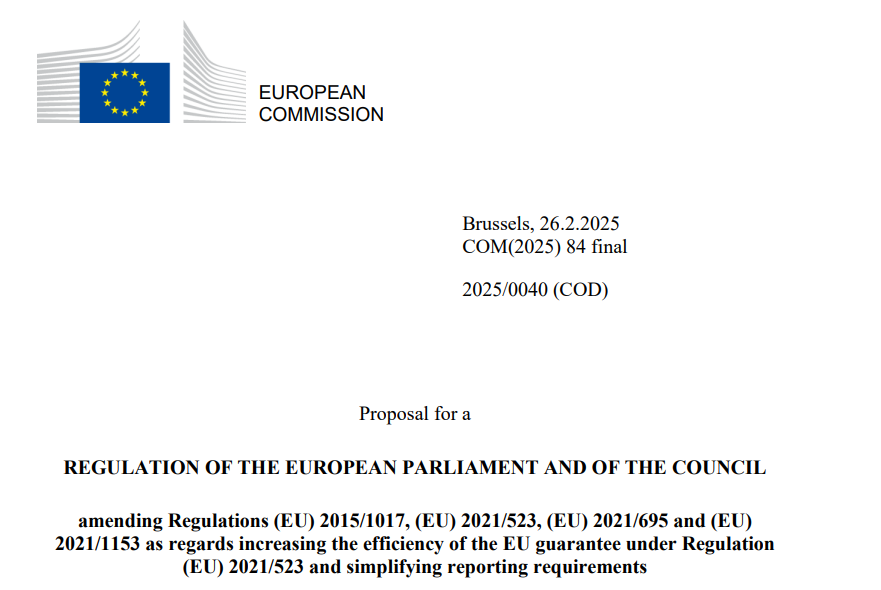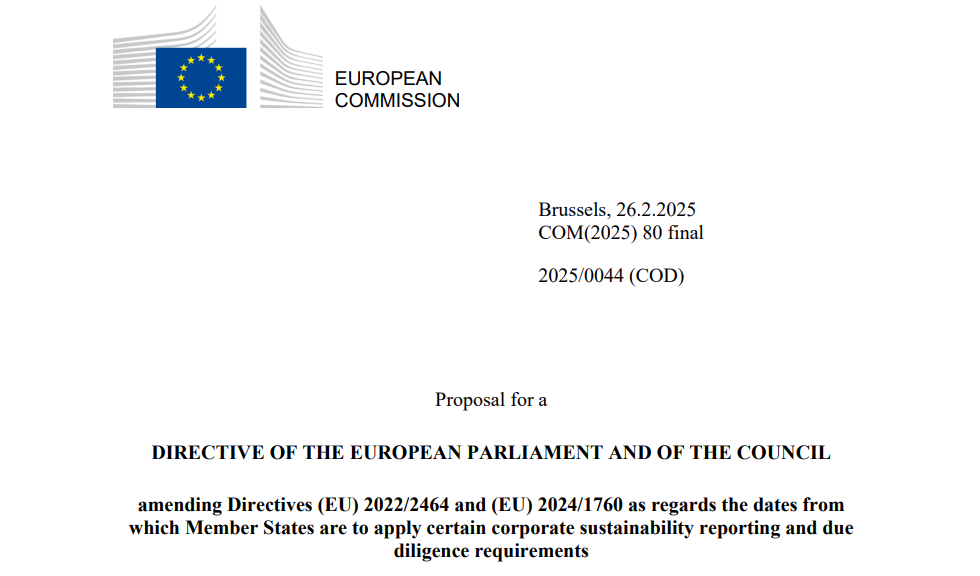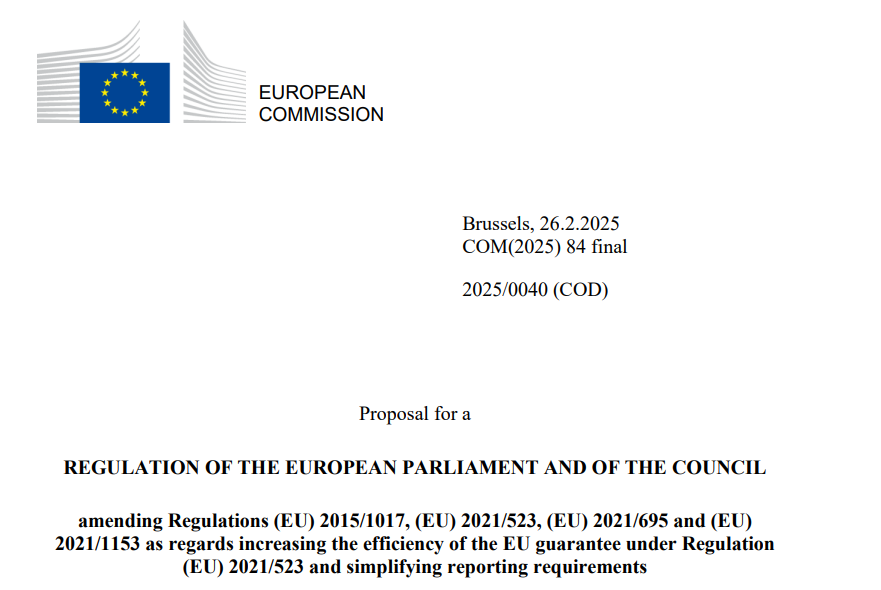EU Postpones Key Sustainability Directives Amid "Stop-the-Clock" Push for Simplification and Competitiveness
Following a recent vote in the European Parliament, the EU has introduced notable adjustments to the implementation timelines of its flagship sustainability directives. These changes – framed as part of a broader simplification agenda – affect the CSRD and CSDDD, with implications for companies operating across EU Member States.

The EU’s sustainability policy framework is entering a period of recalibration. On 3 April, the European Parliament approved delays to the Corporate Sustainability Due Diligence Directive (CSDDD) and the Corporate Sustainability Reporting Directive (CSRD). These adjustments reflect the political momentum behind the Council’s “stop-the-clock” proposal, which aims to reduce regulatory burden and enhance competitiveness, while preserving the strategic direction of the EU Green Deal.
Omnibus Package: The Broader Simplification Agenda
In fact, the recent delays form part of a broader legislative initiative – the “Omnibus Simplification Package” – aimed at reducing complexity and easing compliance burdens for businesses. On 26 February, the European Commission introduced this package to address multiple regulatory frameworks, including the CSRD, the CSDDD, the Taxonomy Regulation, and the Carbon Border Adjustment Mechanism (CBAM), with a view to improving the EU’s global competitiveness.
The Omnibus Package consists of two parts: Omnibus I, which proposes amendments to the CSRD, CSDDD, and Taxonomy Regulation, and Omnibus II, which focuses on streamlining EU investment programmes such as InvestEU. These proposals remain subject to further negotiation and formal adoption but signal a regulatory shift towards greater flexibility and administrative relief.
Revised Timelines: Who Is Affected and When
With 531 votes in favour, 69 against and 17 abstentions, the European Parliament adopted the Commission’s proposal as part of a broader effort to simplify ESG rules. Under the new timeline, member states will have until 26 July 2027 to transpose the CSDDD into national legislation. The first wave of affected companies – those with over 5,000 employees and €1.5 billion in turnover, or non-EU companies with equivalent EU turnover – will apply the due diligence rules from 2028. The same date will apply to the second wave, covering companies with more than 3,000 employees and €900 million in turnover.
The timeline for sustainability reporting under the CSRD has likewise been postponed. Large companies exceeding 250 employees will be required to publish their first sustainability reports in 2028, covering the 2027 financial year. Listed SMEs will begin reporting one year later, in 2029.
Strategic Outlook
The decision to delay key sustainability directives marks a notable adjustment in the EU’s regulatory roadmap. While framed as a simplification effort, it creates a new planning environment for undertakings operating within or in relation to the European market. The overall direction of the EU’s sustainable finance agenda remains unchanged, but its implementation will follow a more gradual path.
For preparers, the coming months will require careful alignment between revised legal requirements and ongoing market expectations. Maintaining operational readiness and cross-jurisdictional consistency – particularly for internationally active organisations – will be essential for maintaining trust and regulatory consistency across jurisdictions.



